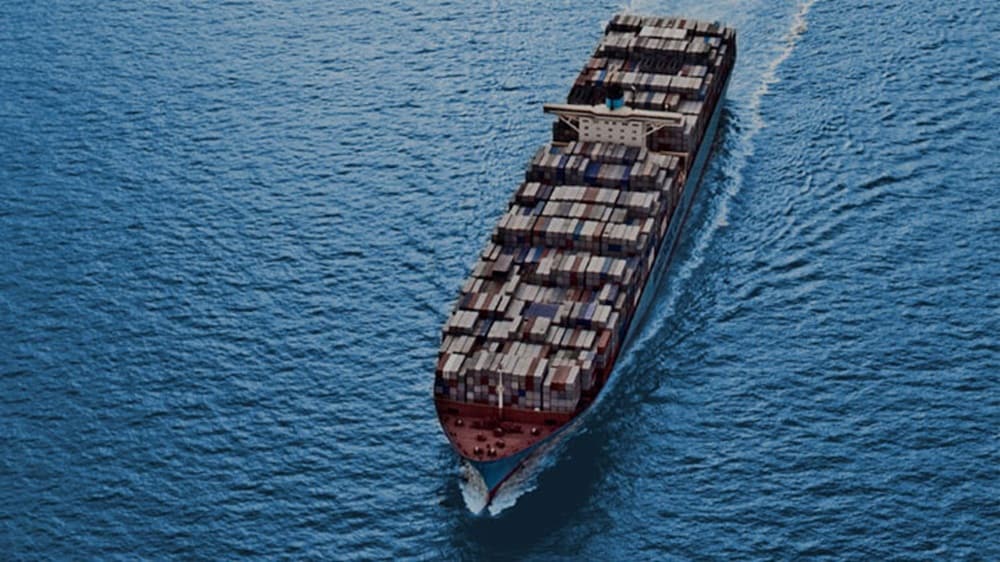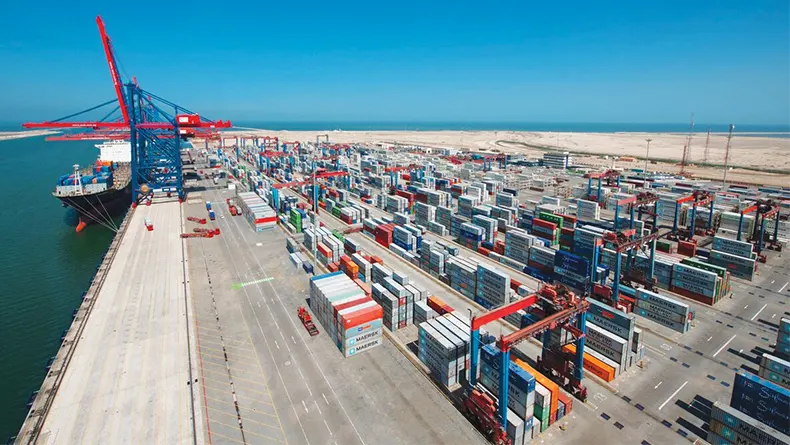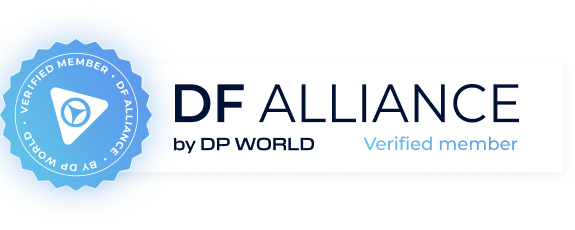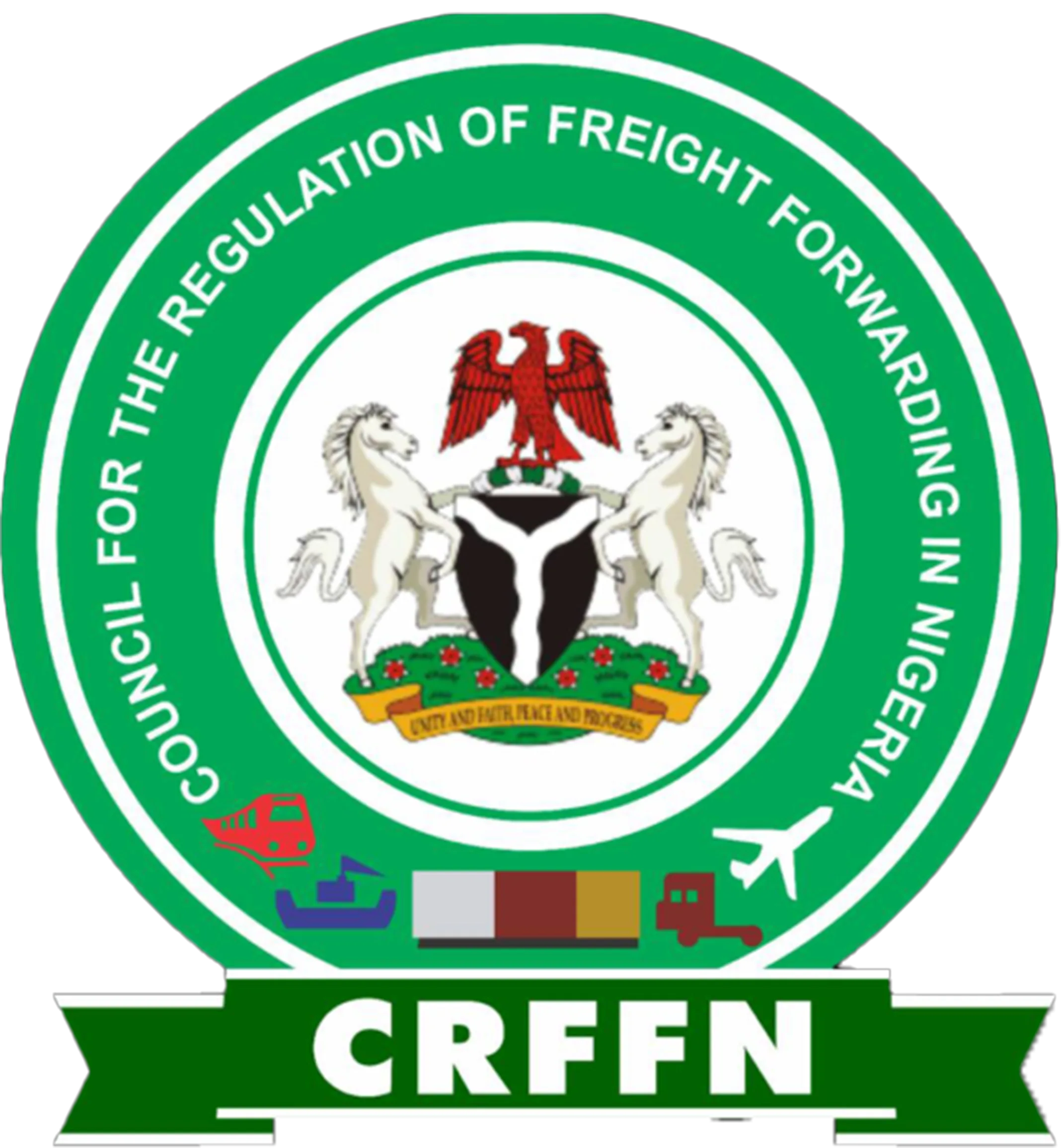Connecting Libya across Africa and beyond
Providing you with expert guidance for navigating Libya’s complex trade landscape.
Limark has a proven track record of facilitating seamless cargo transportation to and from Libya, a challenging but rewarding market. Today, our expansive network spans over 40 African countries, connecting businesses across the continent to global opportunities.
With deep-rooted expertise in African trade and logistics, Limark offers tailored solutions for diverse industries, from oil and gas to consumer goods. Our end-to-end services comprise customs brokerage, freight forwarding, warehousing, and distribution, ensuring your cargo reaches its destination efficiently and compliantly.

Import regulations
Importing goods to Libya requires navigating specific procedures and documentation. Here’s a breakdown of the essential requirements:
Product categories requiring import licenses/permits
Food products
- All food imports require a permit from the Food Control Centre (FCC). This includes processed foods, raw ingredients, additives, and beverages
- Specific labeling requirements in Arabic must be met
- Samples may be required for testing
Pharmaceuticals and medical devices
- A permit is needed from the Medical Supply Department (MSD) for all medicines, medical devices, and equipment.
- Registration with the MSD is mandatory for all imported pharmaceuticals.
- Strict quality control measures and documentation are required.
Chemicals and hazardous materials
- The Environmental General Authority (EGA) regulates the import of chemicals and hazardous materials.
- A permit is required, and detailed safety data sheets must be submitted.
- Proper packaging and labeling are essential.
Telecommunications equipment
- The Ministry of Communications and Technology (MCT) oversees the import of telecommunications equipment, including mobile phones, computers, and network devices.
- A permit is required, and compliance with technical specifications is necessary.
Vehicles
- The Ministry of Economy and Trade (MET) regulates vehicle imports.
- Permits are required for new and used vehicles.
- Age restrictions apply to used vehicles.
- Conformity with Libyan standards is essential.
Cultural and archaeological artifacts
- The Department of Antiquities (DoA) has strict regulations on importing cultural and archaeological artifacts.
- A permit is required, and the items must be declared upon entry.
- Export permits from the country of origin may also be necessary.
Other Regulated Products
- Additional permits may be required for various other products, including live animals, plants, military equipment, and dual-use goods.
- Consult the relevant ministries or agencies for specific requirements.
Prohibited and Restricted Imports
- Narcotic drugs and psychotropic substances
- Pornographic and obscene materials
- Goods originating from Israel
- Pork and pork products
- Alcohol and alcoholic beverages (except for limited quantities for personal use with a special permit)
- Counterfeit goods and pirated materials
- Endangered species and products derived from them (unless authorized by CITES)
- Used clothing and footwear (except for personal effects)
- Right-hand drive vehicles
- Radioactive materials (except for medical and industrial use with a special permit)
- Explosives, firearms, and ammunition (unless authorized by the Ministry of Interior)
- Certain chemicals and pesticides (unless registered with the EGA)
Relevant agencies
- Libyan Customs Authority (LCA)
- Ministry of Economy and Trade (MET)
- Central Bank of Libya (CBL)
- Food Control Center (FCC)
- Medical Supply Department (MSD)
- Environmental General Authority (EGA)
- Ministry of Communications and Technology (MCT)
- Department of Antiquities (DoA)
- Ministry of Interior
- Ministry of Agriculture
- Ministry of Health
Free Time
Varies depending on the shipping line and port, typically ranging from 3 to 7 days after the container is discharged.
Demurrage charges
- Applied when the free time is exceeded.
- Calculated per container, per day.
- Rates vary depending on the shipping line and container size.
- Can escalate significantly if not addressed promptly.
Detention charges
- Applied when the container is held beyond the agreed-upon time for return to the shipping line.
- Separate from demurrage charges.
- Rates vary depending on the shipping line and container size.
Storage Limitations
- Port terminals have limited storage capacity.
- If containers are not cleared within a certain time, they may be moved to an off-dock depot at the importer’s expense.
Applicable fees
- Demurrage and detention charges are outlined in the shipping line’s tariff.
- Storage fees at off-dock depots are separate and can add up quickly.
Commercial Invoice
- Detailed description of goods (including HS codes)
- Quantity, weight, and value of goods
- Incoterms (International Commercial Terms)
- Payment terms
- Consignee and consignor details
Packing List
- Detailed list of all items in each package
- Description, quantity, weight, and dimensions of each item
- Package markings
Bill of Lading/Airway Bill
- Evidence of the contract of carriage between the shipper and carrier
- Details of the shipment, including the consignee, consignor, and port of loading/discharge
Certificate of Origin
- Declares the origin of the goods
- May be required for preferential tariff treatment under trade agreements
Import License/Permit
- Mandatory for regulated goods
- Issued by the relevant government agency
Certificate of inspection
- Issued by an authorized inspection company
- Verifies the quality, quantity, and value of the goods
- Additional Documents (Depending on the type of Goods):
- Phytosanitary certificate (for plants and plant products)
- Health certificate (for animals and animal products)
- Analysis certificate (for certain chemicals and food products)
- Radiation certificate (for radioactive materials)
- Technical specifications and conformity certificates (for telecommunications equipment)
- Certificate of insurance (for certain high-value goods)
- Import declaration form (IDF)
Import licenses and permits
Step-by-Step Guidance
- Identify the Regulating Agency: Determine the relevant ministry or agency responsible for your goods.
- Compile Required Documents: Gather all necessary documents, such as supplier contracts, product specifications, laboratory test reports, and certificates of origin.
- Submit Application: Complete the import permit application form and submit it along with the required documents and fees to the relevant agency.
- Processing and Approval: The application will be reviewed, and if approved, the import permit/license will be issued.
- Validity and Renewal: Permits and licenses typically have a validity period of 6-12 months and may be renewable.
- Fees: Vary depending on the type of product and the issuing agency.
Customs clearance procedures
- Appointment of Customs Broker: It is mandatory to engage a licensed customs broker to handle the clearance process.
- Submission of Documents: The customs broker submits the import declaration form (IDF) and all required documents to the Libyan Customs Authority (LCA) through the ASYCUDA system.
- Payment of Duties and Taxes: The importer or customs broker pays the applicable duties, taxes, and fees based on the customs valuation of the goods.
- Risk Assessment and Inspection: The LCA conducts risk assessment and may select shipments for inspection. Inspections can be documentary, physical, or involve sampling and testing.
- Release of Goods: If the shipment complies with all regulations and requirements, the customs authorities release the goods for delivery to the importer.
Port/Terminal operations
Major Seaports
- Tripoli Port: The largest and busiest port in Libya, handling various types of cargo.
- Benghazi Port: A major commercial port in eastern Libya.
- Misrata Port: A modern container terminal with good infrastructure.
- Khoms Port: A smaller port handling mainly bulk cargo.
Air Cargo Hub
- Tripoli International Airport (TIP): The primary airport for air cargo imports.
Cut-off Dates
- Vary depending on the shipping line and port of destination.
- It is essential to confirm the cut-off dates with your shipping agent or freight forwarder.
Container operations
- Containers are typically handled at port terminals or off-dock container yards.
- Free time for container pickup/drop-off is usually limited.
- Storage options are available at off-dock depots for longer dwell times.
Disclaimer: Please note that this information is based on the latest available data and may be subject to change. Always consult with relevant authorities and experts for the most up-to-date and accurate information.
Export regulations
Exporting goods out of Libya requires navigating specific procedures and documentation. Here’s a breakdown of the essential requirements:
Product categories requiring export licenses/permits
Crude oil and petroleum products
The primary export of Libya, crude oil, and its derivatives are subject to strict regulations and require export permits from the National Oil Corporation (NOC).
Scrap Metal
The export of scrap metal is regulated due to concerns about illegal activities. A permit from the Ministry of Economy and Trade is required.
Cultural and Archaeological Artifacts
The Department of Antiquities strictly controls the export of cultural and archaeological artifacts. A permit is mandatory, and stringent documentation is required to prevent illegal Live Animals and Animal Products:
The export of live animals and animal products, such as meat and dairy, requires permits from the Ministry of Agriculture and Livestock. Health and veterinary certificates are also necessary to ensure compliance with international standards.
Plants and Plant Products
The export of plants and plant products, including fruits, vegetables, and seeds, requires phytosanitary certificates from the Ministry of Agriculture and Livestock to prevent the spread of plant diseases and pests.
Chemicals and Hazardous Materials
The export of chemicals and hazardous materials is regulated by the Environmental General Authority (EGA). Permits are required, and specific safety and packaging regulations must be followed.
Other Regulated Products
Other products that may require export licenses or permits include pharmaceuticals, medical devices, certain minerals, and dual-use goods. Consult relevant ministries or agencies for specific requirements.
Prohibited or restricted for Export
Weapons, Explosives, and Ammunition
The export of weapons, explosives, and ammunition is strictly prohibited unless authorized by the Ministry of Defense.
Narcotic Drugs and Psychotropic Substances
The export of illegal drugs is prohibited and subject to severe penalties.
Endangered species
The export of endangered species and products derived from them is prohibited unless permitted under the Convention on International Trade in Endangered Species of Wild Fauna and Flora (CITES).
Counterfeit Goods and Pirated Materials
The export of counterfeit goods and pirated materials is prohibited to protect intellectual property rights.
Required Documents
- Commercial Invoice: Detailed description of goods (including HS codes), quantity, weight, value, Incoterms, payment terms, and consignee/consignor details.
- Packing List: Detailed list of all items in each package, including description, quantity, weight, dimensions, and package markings.
- Bill of Lading/Airway Bill: Evidence of the contract of carriage between the shipper and carrier, including details of the shipment, consignee, consignor, and port of loading/discharge.
- Certificate of Origin: Declares the origin of the goods and may be required for preferential tariff treatment under trade agreements.
- Export License/Permit: Mandatory for regulated goods and issued by the relevant government agency.
- Other Certificates: Depending on the type of goods, additional certificates may be required, such as phytosanitary certificates, health certificates, analysis certificates, and radiation certificates.
Export Declaration Process
- The exporter or their customs broker must submit an export declaration to the Libyan Customs Authority (LCA) through the ASYCUDA system.
- The declaration must include all required documents and information about the shipment.
- The LCA may conduct risk assessments and select shipments for inspection.
Major Ports
- Ras Lanuf Oil Terminal: The largest oil export terminal in Libya.
- Es Sider Oil Terminal: Another major oil export terminal.
- Marsa El Brega Oil Terminal: A significant oil and gas export terminal.
- Tripoli Port: Handles containerized and general cargo exports.
- Benghazi Port: A major port for general cargo exports.
Cut-off Times and Procedures
- Vary depending on the shipping line and port of destination.
- Exporters should confirm cut-off times with their shipping agent or freight forwarder well in advance.
Container Storage
- Limited container storage is available at port terminals.
- For longer storage periods, containers may need to be moved to off-dock depots.
Returning empty containers
- Procedures for returning empty containers vary depending on the shipping line and port.
- Exporters should coordinate with their shipping agent or freight forwarder for instructions and applicable charges.
Duties, Taxes, and Fees
- Export Duties: Generally, Libya does not impose export duties on most goods. However, certain products may be subject to specific export taxes or levies.
- Other Fees: Various other fees may apply, such as customs processing fees, documentation fees, and terminal handling charges.
Disclaimer: This information is based on the latest available data and is subject to change. Always consult with relevant authorities and experts for the most up-to-date and accurate information.
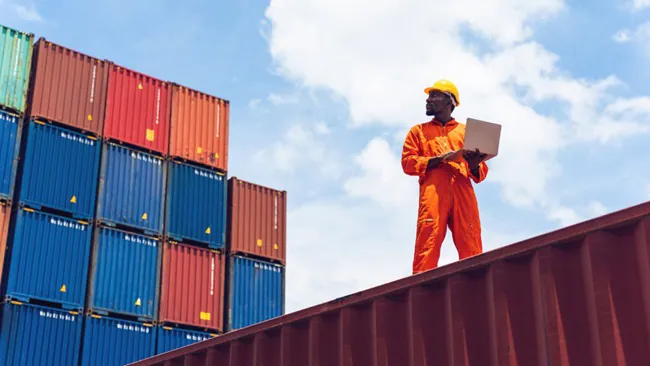
End-to-end cross-border logistics solutions— your gateway to/from Libya
Navigating the complexities of Libyan trade regulations can be a daunting task, but with the right expertise, your business can thrive in this dynamic market. Don’t let uncertainties hinder your import and export potential.
Partner with Limark, your trusted guide in the Libyan business landscape. Our deep understanding of local regulations and extensive network and experience ensure your shipments flow smoothly and efficiently. Whether you’re importing essential goods or exporting valuable resources, we are your key to unlocking success in Libya. Contact us today to discover how we can simplify your trade journey and maximize your business opportunities.
Get Expert Guidance
Contact our regional experts
Partner with experienced freight forwarders and customs brokers for seamless shipping to and from Libya. Ensure full documentation compliance with the guidance and logistics services of our team.
Sales enquiries
We’re happy to talk to you about your shipment needs anytime. Please get in touch with us.
Ready to ship?
Get your shipment moving faster. Request a quote today for our end-to-end supply chain services.
Other African Countries


